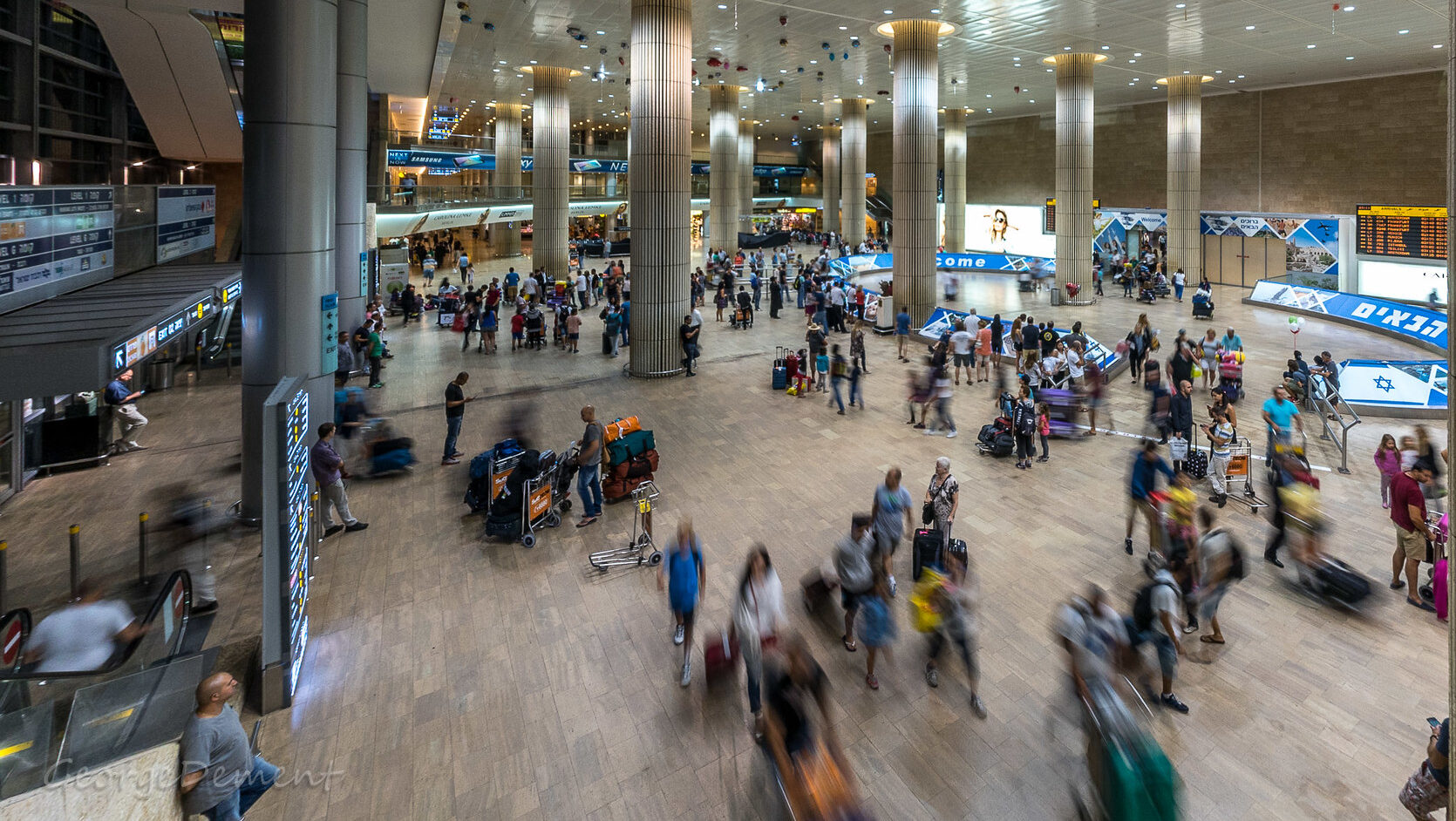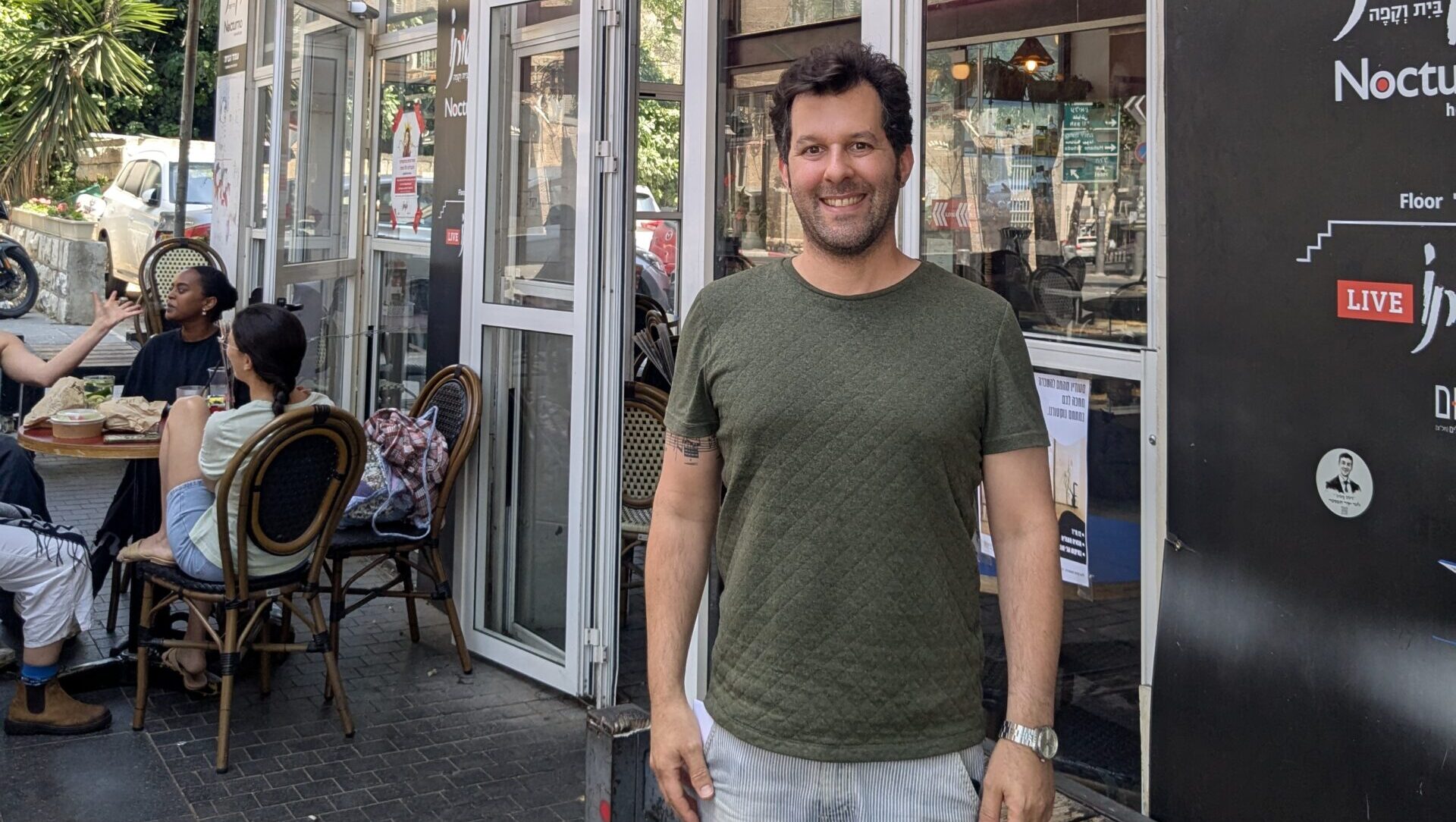When Will Tourism Come Back to Israel?
As the ceasefire with Iran takes hold, the tourism industry faces another uphill climb, after years of setbacks from conflict and COVID
Israel’s airspace reopened Tuesday night, hours after a ceasefire was achieved between Israel and Iran. While many flights have resumed, Israel’s tourism industry still has a long way to go to recover. Anat Aronson, spokesperson for the Ministry of Tourism, told The Media Line that the tourism industry is “the first to get hurt and the last to recover” in situations like these.
Before the war with Iran, Israel’s tourism industry was attempting to recover from the effects of the October 7 attack. Asaf Ben Ari, CEO of the Bein Harim tour company, said that business had just started to pick up again at the beginning of 2025, though it still wasn’t at the levels of before October 7.
The company, which used to operate close to 20 tour buses a day during the peak tourist season in June, wasn’t operating at all due to the war with Iran, he said. During June, Bein Harim was sending out only one or two minibuses a day, despite the usual Pride Month boost.
Ben Ari, who is also a board member of the Israel Incoming Tour Operators Association, said that the company was down to five or six employees from a high of about 150.
Shira Asidan, manager of the Avis car rental agency in Jerusalem, told The Media Line the agency used to have anywhere from 15 to 50 reservations a day this time of year. Now, it is down to only four or five on a good day.
Hotels have also struggled to fill rooms, with the Three Arches hotel in Jerusalem nearly empty, the manager told The Media Line.
Despite June usually being a busy season, Jerusalem’s Citadel hotel has about 100 rooms rented, only just over a fourth of their capacity, a spokesperson for the hotel told The Media Line.
After the ceasefire and the lifting of work and gathering restrictions by the Home Front Command, Bein Harim opened again, but Ben Ari said they still haven’t operated any tours.
“Basically, we’re open, but we don’t have clients,” he explained.
Instead of operating tours, the company has assisted tourists in leaving Israel by arranging transport to the Egyptian and Jordanian borders, where local operators in coordination with Bein Harim take them to the airport or hotels, Ben Ari said.
Such services likely won’t be needed for long. Now that Ben Gurion Airport has reopened, most people will be able to fly out of Tel Aviv and won’t need to leave through Egypt or Jordan.
At the beginning of the war, about 40,000 tourists were stuck in Israel, according to the Ministry of Tourism. With most people leaving through the Egyptian and Jordanian borders, that number is down to 20,000 and will most likely be reduced even more in the coming days, Aronson said.
Despite flights returning, Ben Ari believes it could be months before they start seeing tourists return.
Asidan, the car rental manager, said that a bad situation means things can only improve. She noted that companies in Israel are prepared to handle times that are bad for business.
“There are always times that it’s more difficult, and sometimes it’s better. … I think Israel got used to it, so every company knows how to deal with this situation after October 7,” she said.
Asidan pointed to the coronavirus pandemic and its aftermath as a situation when tourism increased dramatically after screeching to a halt. Ben Ari, though, noted an important distinction between Israel’s security situation and the pandemic.
Give the gift of hope
We practice what we preach:
accurate, fearless journalism. But we can't do it alone.
- On the ground in Gaza, Syria, Israel, Egypt, Pakistan, and more
- Our program trained more than 100 journalists
- Calling out fake news and reporting real facts
- On the ground in Gaza, Syria, Israel, Egypt, Pakistan, and more
- Our program trained more than 100 journalists
- Calling out fake news and reporting real facts
Join us.
Support The Media Line. Save democracy.
During COVID, the whole world stopped tourism. Here, all the tourism in the world is going normal, just in Israel it stopped.
“During COVID, the whole world stopped tourism,” he said. “Here, all the tourism in the world is going normal, just in Israel it stopped.”
Aronson said the 12-day war echoed around the world, with pictures of the damage being shared. But she noted that danger is present all around the world. “Terror can hit everywhere—in London, in Paris, in Germany, in Africa, in the Far East,” she said. “We have seen all those cases. Here in Israel, we know how to deal with it. … Unfortunately, we are experienced.”
Amit Magal, owner of Nocturno, a three-story compound in Jerusalem that includes a café and restaurant, a live performance space, and shops, told The Media Line he was cautiously optimistic about a ceasefire.
Magal, who started the business when he was 15 and has operated it for 30 years, noted the last few years have been particularly difficult.
We have seen a lot of situations during the years, but I think the past five years have been by far the worst.
“We have seen a lot of situations during the years, but I think the past five years have been by far the worst,” Magal said. “Starting with COVID, which was like a worldwide thing, and then October 7.”
He noted that after COVID, 2023 began as a good year, but he said since October 7, they haven’t seen tourists come from outside of Israel.
“Tourism is something that we remotely remember,” he said.
According to Aronson, tourism to Israel has decreased by close to 80% since the October 7 attacks.
Between October 7 and the war with Iran, Israel’s tourism industry relied on Israeli travelers. During the war with Iran, Magal said, even those customers stayed home.
“That’s what makes this a little bit different than everything we’ve experienced before,” he said.
He explained that his business reduced its hours of operation and, over the last two weeks, had to cancel or postpone 10 concerts.
The business currently employs more than 70 people, but that number tends to fluctuate in response to the security situation, Magal said. “That’s what the situation in Israel always forces us to do … to shrink and then to prosper again,” he said. “It’s like a muscle … or a heart. We know how to shrink and have fewer staff and then increase again.”
Magal said his business is trying to figure out how to handle the situation financially, including considering taking out loans. However, he remains optimistic about the future.
We will see different days. I’m hoping that after this, there will be big prosperity in the area. I try to see the light at the end of the tunnel. Right now, we’re in the tunnel.
“We will see different days. I’m hoping that after this, there will be big prosperity in the area,” he said. “I try to see the light at the end of the tunnel. Right now, we’re in the tunnel.”
Ben Ari said the Incoming Tour Operators Association is working to communicate to the government the importance of tourism from abroad.
“If we don’t get support, many businesses won’t survive this crisis,” Ben Ari said. He explained that his association is asking the government for financial help in order to pay salaries and business expenses. They also want the government to encourage tourism to Israel.
About 250,000 people in Israel work in the tourism industry, and tourism makes up 2.8% of the Israeli economy, Aronson said. She noted that 2019 was the record year for incoming tourism, with 4.6 million tourists. In 2024, there were about 1 million tourists, and 2025 will probably see about 1.3 million by the end of the year.
According to Ben Ari, one reason tourists don’t come is that they can’t get travel insurance for Israel.
People from countries that have warnings about traveling to Israel can’t get insurance, Aronson said. She added that the ministry is working with foreign governments to reduce travel warnings.
She also said the government gave about $20 million to companies that organize tourist groups from abroad to keep professional workers in the industry.
“We don’t want them to leave the industry, because it takes years to make them professionals,” she said.
Young people don’t want to work in incoming tourism because they understand that there is a war potentially every few years, and they can find themselves without income
Ben Ari said he is the youngest CEO in the market and noted that fewer young people are entering the tourism industry. “Young people don’t want to work in incoming tourism because they understand that there is a war potentially every few years, and they can find themselves without income,” he said. “Maybe also the situation with Iran will change the situation that we were used to, but I’m not really optimistic about it.”
He feels the government is not doing enough to encourage tourism and help the industry.
Aronson said that the Tourism Ministry invests in campaigns within and outside of Israel and is in contact with travel agencies and airlines in an effort to promote tourism to Israel. She also said the ministry is providing grants to build hotels, which will increase competition and naturally reduce prices.
“We believe that as we enlarge the capacity, we’ll enlarge the number of tourists,” she said.
Aronson noted that Israel has tourism treasures nowhere else in the world, a sentiment shared by Ben Ari.
“Tourism to Israel will always come back, because we are like a monopoly for the Holy Land,” he said.
Addie J. Davis is a recent graduate of the University of North Texas and an intern in The Media Line’s Press and Policy Student Program.





